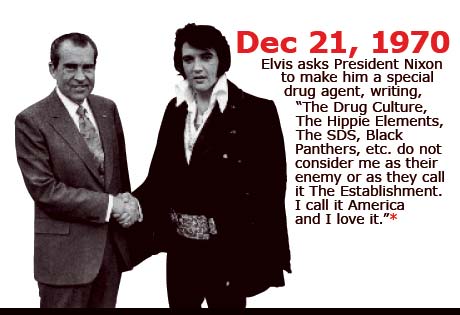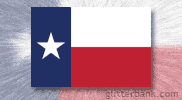As long as there is money to be made in the heroin business, the United States will keep troops in Afghanistan. And there is an enormous amount of money being made there since the invasion which started in 2001. Since that time, opium production in the country has gone up by 3,300% and arrests for cultivating and processing the drug have become rare.
Historically, Afghanistan is not a region known for heroin production or the growth of the poppies used to make the narcotic. The drug was virtually unknown there until after the CIA sent advisors into the country to assist the Afghan Mujahideen in their war against the Soviet Union during the late 1980s. During that era, CIA-controlled guerilla leaders initiated the planting of opium poppies in areas they occupied. Across the border in Pakistan, laboratories were set up to process the raw opium into pure heroin, which was then exported from the country aboard aircraft operated by the CIA and proprietary fronts like Haliburton. Immune from Customs, these flights delivered their cargo to the United States and Europe, where they were sold through a network of drug kingpins operating under cover of immunity.
When the Taliban took over the country in 1994, operations continued as usual. In exchange for military and financial aid, the government of Afghanistan continued the practice of allowing the CIA to operate this heroin enterprise with few problems. But in 2000, alarmed that some Afghans were falling victim to heroin addiction, the Taliban outlawed the growing of poppies, and started destroying the crops. Arrests were made. Suddenly, one of the largest illegal industries in the world was on the verge of catastrophe.
That is the primary reason we invaded Afghanistan. To protect the heroin business.
The prime operator in Afghanistan was a man named Richard Armitage, whose bio includes being the biggest heroin trafficker in Cambodia and Laos during the Vietnam War; director of the State Department’s Foreign Narcotics Control Office (a front for CIA drug dealing); head of the Far East Company (used to funnel drug money out of the Golden Triangle); a very close liaison with Oliver North during the Iran-Contra cocaine-for-guns scandal; a primary Pentagon official in the terror and covert ops field under George Bush the Elder; one of the original signatories of the infamous PNAC “New Pearl Harbor” document; and the man who helped CIA Director William Casey run weapons to the Mujahideen during their war against the Soviet Union. Armitage was stationed in Iran during the mid-1970s right before Ayatollah Khomeini overthrew the Shah. Armitage may well be the greatest covert operator in history. He may also be the greatest drug dealer in history.
On Sept. 10, 2001, Armitage met with the UK’s national security advisor, Sir David Manning. What was that meeting about? Was Armitage “passing on specific intelligence information about the impending terrorist attacks”?
The scenario is plausible because one day later, on 9-11, Dick Cheney called for Armitage’s presence down in his bunker. Immediately after WTC 2 was struck, Mr. Armitage told BBC Radio, “I was told to go to the operations center. I spent the rest of the day in the ops center with the vice president.”
These two share a long history. Not only was Armitage employed by Cheney’s company, Halliburton (via Brown & Root), he was also a deputy when Cheney was secretary of defense under Bush the Elder. More importantly, Cheney and Armitage still had joint business and consulting interests in the Central Asian pipeline which had been proposed by Unocal.
Since the 1980s, Armitage had amassed a huge roster of allies in Pakistan’s secret police. He was also one of the “Vulcans” – along with Condi Rice, Paul Wolfowitz, Richard Perle, and Rabbi Dov Zakheim – who coordinated Bush’s geo-strategic foreign policy initiatives. Then, after 9-11, he negotiated with the Pakistanis prior to our invasion of Afghanistan, while also becoming Bush’s deputy secretary of state stationed in Afghanistan.
The proposed Unocal pipeline through Afghanistan had been rejected by the Taliban, who opted to deal with a different contractor. At stake were trillions of dollars in oil money, and trillions more in illegal drug money. In a final meeting about the Unocal pipeline deal, US officials warned Taliban negotiators that they must “accept our offer of a carpet of gold, or we will bury you under a carpet of bombs.” This was one month before the 9-11 attacks.
Our “enemy,” of course, was the Taliban “terrorists” who were connected to the 9-11 attacks. This in spite of the fact that no evidence of any such connection has ever surfaced, and in spite of the fact that until they rejected the pipeline and shut off the heroin, they were allies.
We do know that George Tenet, Colin Powell, Porter Goss, and Armitage himself had all developed close relationships with Pakistan’s military head of secret intelligence, General Mahmoud Ahmad, who was cited in a Sept. 2001 FBI report as “supporting and financing the alleged 9-11 terrorists, as well as having links to al Qaeda and the Taliban.”
So the line between friend and foe gets even murkier.
Afghan President Hamid Karzai not only collaborated with the Taliban, but he was also on Unocal’s payroll in the mid-1990s. He is also described by Saudi Arabia’s top newspaper as being “a Central Intelligence Agency covert operator since the 1980s who collaborated with the CIA in funding U.S. aid to the Taliban.”
Capturing a new, abundant source for heroin was an integral part of the U.S. “war on terror.” Hamid Karzai is a puppet ruler of the CIA; Afghanistan is a full-fledged narco-state; and the poppies that flourish there have yet to be eradicated, as was proven in 2003 when the Bush administration refused to destroy the crops, despite having the chance to do so.
Major drug dealers are rarely arrested, smugglers enjoy carte blanche immunity, and a leading London newspaper has theorized that “U.S. Army planes leave Afghanistan carrying coffins empty of bodies, but filled with drugs.” Is that why the military protested so vehemently when reporters tried to photograph returning caskets?
Our government was caught dealing drugs before, in the 1980s, when a reporter for the San Jose Mercury News uncovered proof that the CIA had been flying planeloads of cocaine into the US from Honduras, which fueled the introduction of crack cocaine into Los Angeles, and later all of the cities of America. The reporter who uncovered this crime network was later found dead with two bullets in his head. His death was ruled a suicide!
Prior to that, the CIA was involved in importing heroin from southeast Asia aboard military flights during the Vietnam era. For the past fifty years the CIA has been the primary supplier of hard core narcotics that reach the streets of America.
According to retired congressman and former presidential candidate Ron Paul, not only has the CIA been involved for many years in the international drug trade, but former president Bush the First was “deep into it” as a money-making venture.
So, while our local cops and judges are working hard to stop the illegal drug business from ruining a generation of young folks, high officials in our own government have been involved in supplying the drugs under cover of official business.
Now that you know, that’s one more person they will have to kill.




